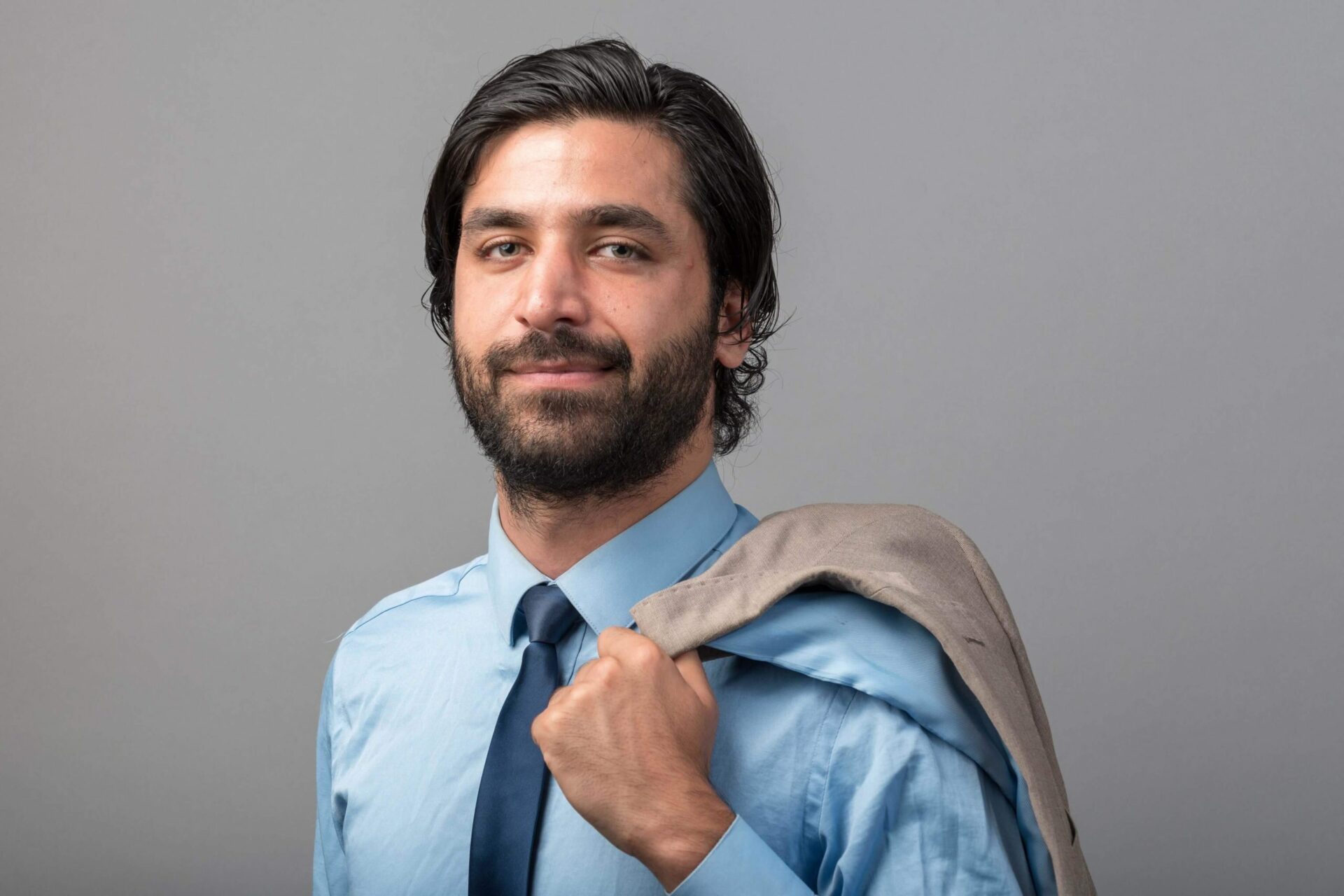Figures from past editions of Techpoint’s Nigerian Startup Funding Report have shown that more foreign venture capitalists are participating in the Nigerian startup space than their local counterparts.
Furthermore, a 2018 report by Weetracker on African startups revealed that Nigeria accounted for 29% of the total deals in the continent.
In a recent chat with Techpoint, Kyane Kassiri — a Tunisian who recently moved to Nigeria to join LoftyInc Capital Management as associate VC — gave his impression about the Nigerian startup space while also making comparisons with the North African market.
Tell us about yourself.
My name is Kyane Kassiri – a Tunisian citizen – I grew up on the Mediterranean coast in Northern Africa. I studied software engineering and started the Young Tunisian Coders Academy in 2015, the pioneering coding school for kids in the country. The academy has since gone national with activities in 12 cities across the country and over 2,000 kids trained over time.
Afterwards, I moved into the startup world, starting with the Founder Institute [pre-seed accelerator] as a program management intern in 2015 before founding Hannilab a year later, which is an offshore technical consulting company connecting top local engineering talent to clients in the U.S.
I also have failure experience. I launched TripOpt, a mobile platform offering customized travel experiences, in 2016 along with my co-founders but I failed finding product/market fit. The failure taught me about the harshness of building a start-up and the loneliness of the entrepreneurial journey.
After that, I moved into the venture capital world starting as an intern with AfricInvest in Tunisia. I was part of the Cathay AfricInvest Innovation Fund which is a $150million Pan-African fund for growth-stage startups on the continent.
During my internship at AfricInvest, I did market research and analyses of industries outside Tunisia and I was exposed to quality deal-flow which made me realise the huge opportunities in the startup and investment landscape in Africa.
I joined LoftyInc Capital Management and moved to Nigeria in April this year.
What prompted your move to Nigeria?
Basically numbers, the numbers are there and they don’t lie. In WeeTracker’s 2018 report about African startups, Nigerian startups were reported to have secured the largest amount of funding. Nigeria also has the highest number of startups that raised millions of dollars in a single round: the likes of Paga, Paystack among others.
Even in Y Combinator, six of the seven African startups that graduated in the last batch were from Nigeria. This shows how much Nigerian startups are dominating the charts at both the continental and international levels.
Coming from a North African country, what’s your impression of the Nigerian startup space?
It’s very different from what I’ve seen in North Africa. First, there’s the size of the market. Tunisia, for instance, has about 12 million people — about half the population of Lagos. When you have such a small market, B2C is very hard and even B2B is a small market.
What we do, especially with the French influence, is a proof of concept and some early-stage in Tunisia but then as soon as the startup becomes serious, we move to France.
Here in Nigeria, you can be a giant without serving other markets. Secondly, the quality of entrepreneurs. A lot of the returning diaspora are active in the startup space here — people who studied at Harvard, and London Business School among others. Even for the larger population who did not study or work abroad, there’s the hustling spirit which I think is cultural. I think they are taught to hustle and be hungry for success which is important for entrepreneurs.
I also noticed that Nigeria is missing with respect to deep technology. Most of the technology here is quite low to medium tech compared to Tunisia where we have one of the highest number of PhDs and researchers of any of the five North African countries (PDF). And a lot of startups (in Tunisia) do deep tech like virtual reality and artificial intelligence among others.
In Nigeria, they do platforms, marketplaces, and web and mobile applications. I think it’s important to bridge the gap between universities and the startup world here in Nigeria so that researchers and people working on their PhDs can translate their work into startups and businesses.
Compared to the Tunisian market, what do you find interesting about the Nigerian startup space?
From the startup ecosystem point, the opportunities here are numerous. There are a lot of incubators, supporting programmes, and angel investors. We need more VCs and early-stage investors other than DFIs.
More Nigerians now have access to equity funding unlike some years ago where grants were the most available option. New VCs are also coming into play as well as new investment tools such as convertible notes.
I receive pitch decks from Nigerian students on a daily basis but the quality is very low because nobody is giving them startup education at the university level. It’s important to build solid bridges between universities and the startup world to address this.
As a player in the VC space, why do you think there are more foreign investors playing in the Nigerian space than local investors?
It’s part of the transition, Nigeria is still transitioning from the oil economy to a digital economy. Young Nigerians are now aspiring to be startup founders. The next step will be to see the transition happen with the investors.
The traditional investor who likes to buy lands and houses will start thinking about investing in technology startups. We have seen traditional investors contacting us about starting something in the tech space.
For example, at LoftyInc Capital Management, we are raising a $60million fund but then we are also raising a local fund for Nigerian investors that want to be part of it. A lot of people here can write cheques for $25K, $50K, $150K or more and they want to have their first experience within the tech space but they don’t know where to start.
We offer them this local fund where we pool all these small cheques together. This pool is then injected into the bigger fund. And we are not only looking for institutional investors but high-net-worth individuals as well.
What’s your take on the notion that one can get funding for an idea in the US when you will have to show some proof before getting the same in Nigeria?
I think we need to kill this myth about the United States because that’s what it is, a myth. This is mostly applicable for seasoned founders. The founder’s profile is important because if you graduated from Harvard and worked at McKinsey or Boston Consulting Group before leaving your high-paying salary to start your own startup, and you have an idea and a good pitch deck, yes, people can invest in you; these are the only possible cases.
It’s not like this is a Nigerian exception and that everywhere else in the world you can raise funds based on an idea, it’s not true. I think it’s also about maturity, the VC market in Africa is relatively new and there are not many success stories about tech startups on the continent.
As someone close to VCs, I know that these African VCs are doing the best they can. They are trying to attract foreign investors while also gathering local investors’ money. But then for founders, you have to comply to the level of maturity of the landscape here, which is still nascent. You need to do your homework, prove yourself and have that traction that we (VCs) are looking for.

What’s your take on the difference between average ticket sizes for Nigerian startups and their counterparts in other markets like Silicon Valley?
I think Nigerians are too harsh on themselves. It’s the same everywhere, even for French people. I have a lot of VC contacts in France and they are saying the same thing that a French Series A can be a seed funding or even a pre-seed in the US. This is pretty much the same in all the countries except the US.
Besides the US, Series A everywhere else is like an American seed.
What have you learnt about the Nigerian startup space within the short time that you have been in the country?
It’s mostly in comparison, so I’ve been trying to understand how East Africa is different from West Africa as well as other regions of the continent. For example, there’s a big number of expat founders in Kenya while it’s completely different here (in Nigeria). Nigerian fundings mostly go to Nigerians because the local investors know that it’s not easy operating in the Nigerian business environment. Local investors have a preference for local entrepreneurs over expats.
Expats can try to make something work here for a year or two after which they move back to their countries if it doesn’t work out. But then as a Nigerian, you make it a success, pivot, or try something else.
I also noticed that the nature of startups differs from one city to the next. In Ibadan, for example, most of the startups are into agritech, while most of the ones in Abuja have some kind of link with the government.
What are the things you think are applicable in the Northern African market that Nigeria can try to adopt?
I will like to start with an example of the Startup Act. The Startup Act is a set of laws that has been recently implemented in Tunisia and what’s interesting is that these laws were not written by politicians. They were drafted by entrepreneurs, VCs, and people working within the tech ecosystem. We all came together, created a task force, and listed all our problems focusing on why it’s a big issue to start a startup in Tunisia.
We listed the problems and narrowed them down to a set of laws. We lobbied the government informing them that the startup community wrote these laws and that without these laws, we cannot survive. We also informed the government that every startup in the country was sure to die if the laws were not implemented.
The laws were recently adopted by the government. What happens is that the government gives a lot of incentives and removes restrictions that are affecting startups. The Startup Act also created Startup Labels which differentiate whether a business is a startup or SME.
Once your company has been classified as a startup, it automatically qualifies you for all the privileges that a startup can have. It could be an incentive for taxes, hiring talents, foreign investments, intellectual property, and others. In some cases, it also gives you a salary so that you can work on your idea while having some kind of financial protection for a limited amount of time.
I think this is something important that Nigeria needs to study because big companies in the country have a lot of advantages compared to startups. In order to give some space to the startups to prove their ideas, they need some kind of a regulatory sandbox where they can try stuff. They also need regulatory incentives that will boost the startup and innovation economy in the country.











